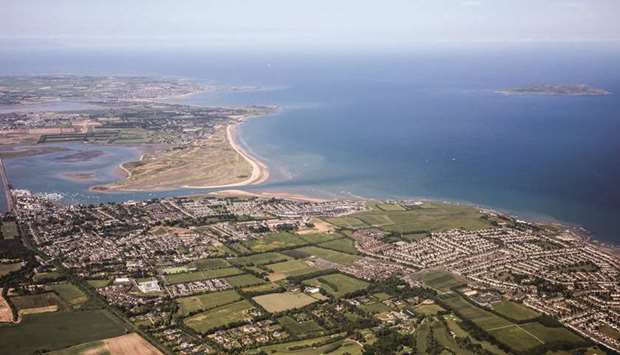Amid uncertainty about the future of London as a financial hub after the UK will have left the European Union – and particularly in case of a no-deal Brexit – Ireland readies to fill the gap that is likely to occur in Islamic finance for EU clients.
“In the context of Brexit, established [Islamic banking] institutions in the UK will potentially lose the ability to carry on business in the EU. Ireland offers a similar stable market and legal system, with an untapped demand for Islamic finance, allowing these institutions to continue to have access to the markets of the other EU-27,” said Simon O’Neill, banking and finance expert at Dublin-based law firm Philip Lee.
The UK is currently home to six fully fledged Islamic banks, while over 20 financial institutions are offering Shariah-compliant products or Islamic banking windows. Analysts at S&P Global Ratings expect a potentially damaging effect of a no-deal Brexit particularly in real estate held by British Islamic banks in- and outside the UK, including Ireland, and financed by Islamic mortgages. Since property is where most of their activity is concentrated, a Brexit without banking passport rights for the EU is likely to substantially undermine Islamic banks’ asset quality.
A move to Ireland could save the banks’ EU-related business and also help tap the market for Islamic finance in Ireland itself, which is estimated to represent an investment opportunity worth over €30mn, according to a recent Philip Lee survey, and that’s just initially.
“We see that the lack of availability [of Islamic banking] in the market in Ireland is creating financial exclusion in the Muslim community which numbers 63,500, according to a 2016 census. The survey shows that 98% of respondents would take up a compliant finance option if it was available in the market,” O’Neill noted.
The Philip Lee Islamic Finance Survey, conducted between mid-December 2018 and early February 2019 with a representative sample of 400 Muslims residing in Ireland, revealed that 86% of respondents expressed a desire to purchase a home or investment property and 98% would use an alternative financial product compliant with Islamic finance principles in preference to a conventional loan, if available. However, the lack of Shariah-compliant home financing products is the main reason for them for not purchasing a property.
This illustrates the significant market potential for Islamic finance amid the third-largest religious group in Ireland – behind Catholics and Anglicans – which is recording growth rates of around 30% a year.
While the Irish government has acknowledged Islamic finance as an opportunity for the country’s financial industry as early as in 2010, there is a lack of clarity with respect to the regulation of Islamic finance products and institutions under Irish law, and there also remain gaps in the respective tax regime.
Even though provisions have been added in the Finance Act 2010 in religiously neutral language for “specified financial transactions” which cover financial products and arrangements based on structures commonly used in the Islamic finance industry, as of yet none of the banks in Ireland offer Islamic financing alternatives neither for retail nor for corporate clients, a stark contrast to the UK. The first and currently sole Islamic finance products in Ireland are being developed by a state-backed social finance enterprise called Community Finance Ireland which provides loans exclusively to organisations such as community groups, charities, sports clubs and social groups. It last year introduced the first Islamic financing instrument generally available in Ireland, a murabahah-based financing product to fund the acquisition of properties by Muslim community groups or social enterprises. This shows that much more can be done make the sector grow.

Residential property and green fields sit near the coast in Dublin Bay, Ireland. The Philip Lee Islamic Finance Survey, conducted between mid-December 2018 and early February 2019 with a representative sample of 400 Muslims residing in Ireland, revealed that 86% of respondents expressed a desire to purchase a home or investment property and 98% would use an alternative financial product compliant with Islamic finance principles in preference to a conventional loan, if available. However, the lack of Shariah-compliant home financing products is the main reason for them for not purchasing a property.
